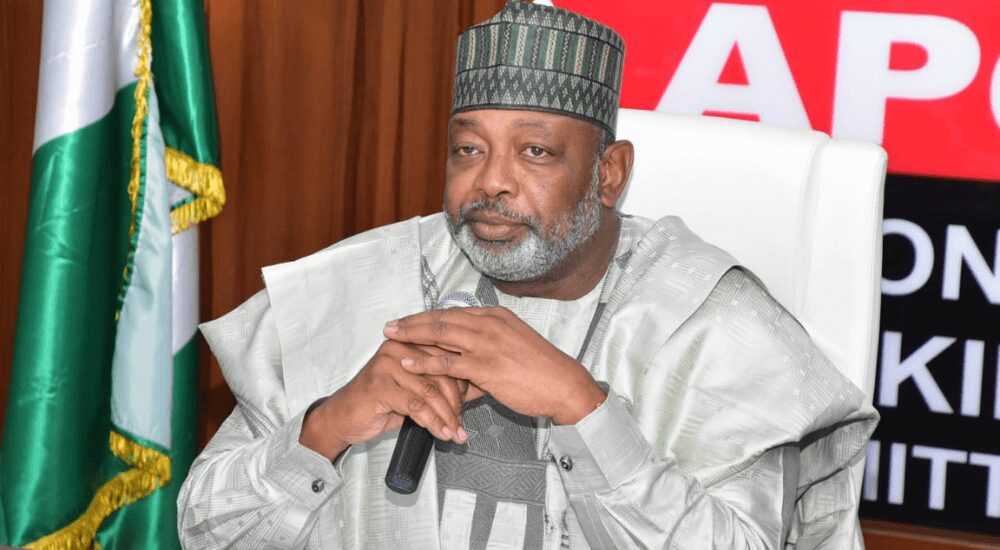Nigeria Launches Digital Farmers Registry To Boost Food Security
The Minister of Agriculture and Food Security, Senator Abubakar Kyari, has announced that the National Digital Farmers Registry (NDFR) will play a pivotal role in strengthening Nigeria’s food security architecture.
He said the platform will enable data-driven policies, targeted interventions, and improved agricultural productivity while ensuring that government support reaches genuinely registered farmers.
Speaking at the National Stakeholders Workshop on Best Practices for the NDFR held in Abuja on Wednesday, Kyari highlighted the importance of the initiative in reshaping the agricultural landscape. He noted that the NDFR will enhance agricultural planning, ensure accountability, and provide a credible and unified farmer identification system.
According to him, the registry will serve as a foundational tool by offering real-time insights into agricultural production patterns, cropping cycles, and regional supply trends. These insights, he said, will empower the government with the clarity needed to anticipate shifts in the food system and respond with precision.
Kyari explained that the NDFR incorporates geo-tagging of farmers and farmlands, linking each farmer to specific geographic coordinates. This feature, he added, strengthens traceability, improves planning accuracy, and enables effective monitoring of government interventions. It also eliminates ghost beneficiaries and enhances transparency in service delivery.
He emphasised that the registry does more than verify farmer identities; it consolidates accurate farmer information into a single national database. With this unified structure across the 36 states and the FCT, the government can deliver inputs, mechanisation, extension services, credit, and insurance more efficiently and inclusively.
Advertisement
The minister stated that centralising all farmer data on one national platform is essential for transparency and accountability. The system, he said, will minimise duplication, curb fraud, and support evidence-based planning. Additionally, it will integrate seamlessly with other national digital platforms, creating access to financial services, climate advisory tools, market information, and early warning systems.
Kyari further noted that the improved visibility provided by the NDFR will enable the government to make smarter decisions regarding resource allocation, risk management, and value chain investments. A reliable national repository of farmer and farmland data, he said, is crucial for managing seasonal pressures and stabilising markets.
He underscored the importance of strong data governance in maintaining the integrity of the registry. The governance framework, he said, will set standards for data collection, validation, sharing, and security. It will also ensure the responsible use of farmer information while keeping the system robust and adaptable.
According to Kyari, the ministry has taken major steps to reform farmer data management. By partnering with the National Identity Management Commission (NIMC), the NDFR will be anchored on the National Identification Number (NIN) to uniquely identify farmers. The Office of the National Security Adviser is also collaborating with the Ministry to embed cybersecurity and national security protocols into the system.
He added that the initiative aligns with Nigeria’s commitment to the Kampala Declaration on strengthening digital and data systems for agricultural transformation under the CAADP Agenda. He said the unified digital platform being developed will contribute to an Africa that plans with clarity and delivers with purpose.
Advertisement
Describing the workshop as more than a technical meeting, Kyari said it provides a co-creation opportunity for government, development partners, innovators, researchers, and farmer groups to shape practical solutions together. He stressed that global best practices are being adapted to suit Nigeria’s unique needs.
In her remarks, the Country Director of the International Fund for Agricultural Development (IFAD), Ms Dede Ekoue, commended the initiative, saying it reflects Nigeria’s commitment to transforming agriculture and improving farmers’ livelihoods. She added that the NDFR aligns with the Kampala Declaration (2026–2035) adopted by AU Member States in January 2025.

